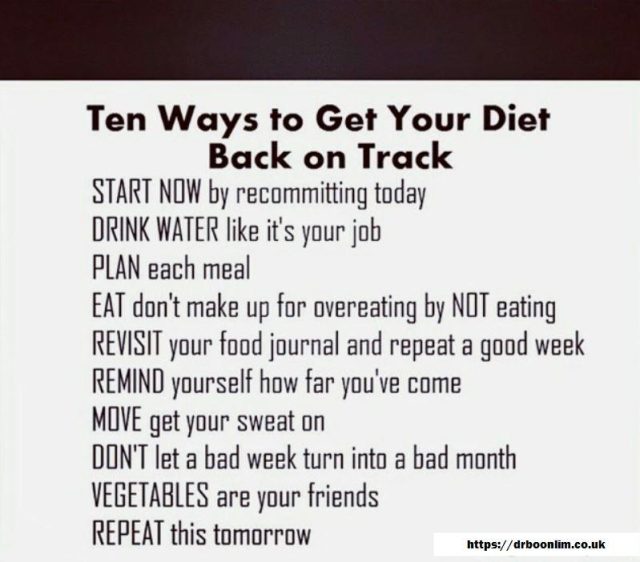Embarking on a journey to improve your health through a diet plan is a commendable decision, one that often comes with a mix of excitement and apprehension. The prospect of transforming your eating habits for long-term success can seem daunting, yet it’s important to remember that you’re not alone in this endeavor. Many people face similar challenges, and it’s entirely natural to feel overwhelmed at times. This article is designed to guide you with practical strategies and empathetic insights to help you stick to your diet plan, ensuring that your efforts lead to sustainable change. Whether you’re just starting out or have faced setbacks in the past, we’re here to support you every step of the way. Let’s explore how you can navigate this path with confidence and resilience, fostering a healthier lifestyle that truly lasts.
Setting Realistic and Achievable Goals
Setting goals that are both realistic and achievable is crucial for maintaining a diet plan over the long haul. Often, we get swept up in the excitement of starting a new diet and set targets that are too ambitious. This can lead to disappointment and eventual abandonment of the plan. Instead, focus on setting SMART goals—Specific, Measurable, Achievable, Relevant, and Time-bound. These types of goals help in maintaining a sense of progress and motivation.
- Specific: Clearly define what you want to achieve. Instead of saying, “I want to eat healthier,” say, “I will eat at least three servings of vegetables every day.”
- Measurable: Ensure you can track your progress. For instance, “I will reduce my sugar intake by 20% over the next month.”
- Achievable: Set goals that are within your reach, considering your current lifestyle and commitments. Don’t aim to lose 10 pounds in a week; aim for 1-2 pounds per week.
- Relevant: Make sure your goals align with your overall life objectives. Ask yourself why this goal matters to you.
- Time-bound: Set a timeline to achieve your goals. This adds a sense of urgency and helps in planning your steps effectively.
To further illustrate, here’s a simple table that compares vague goals with SMART goals:
| Vague Goal | SMART Goal |
|---|---|
| Eat healthier. | Include at least two servings of fruits in my daily diet for the next month. |
| Lose weight. | Lose 5 pounds in the next 6 weeks by exercising thrice a week and reducing calorie intake by 500 calories per day. |
By breaking down your goals into manageable steps, you can celebrate small victories along the way, making the journey more enjoyable and less overwhelming. Remember, consistency over perfection is key in achieving long-term success with your diet plan.

Understanding Your Triggers and Emotional Eating Patterns
Emotional eating can be a sneaky saboteur when it comes to maintaining a diet plan. Understanding what triggers these eating patterns is the first step towards making lasting changes. Many people turn to food for comfort during stressful times, boredom, or even happiness. Identifying these triggers requires a bit of introspection and honesty with oneself.
- Stress: Are you reaching for snacks during tense moments?
- Boredom: Do you find yourself eating simply because there’s nothing else to do?
- Celebration: Is food a constant part of your celebrations, even when you’re not hungry?
Once you’ve pinpointed your triggers, consider alternative strategies to cope with them. This might include practicing mindfulness, engaging in a physical activity, or exploring creative outlets. Developing a plan to address these emotions without resorting to food can transform your approach to eating and empower you to stick to your diet plan with greater resilience.
| Trigger | Alternative Action |
|---|---|
| Stress | Practice deep breathing or yoga |
| Boredom | Start a new hobby or read a book |
| Celebration | Plan a non-food related activity |

Building a Supportive Environment for Your Journey
Creating a nurturing atmosphere is crucial for sustaining a diet plan over the long haul. Surround yourself with people who understand your goals and are eager to support your efforts. Whether it’s family, friends, or an online community, having allies can make a significant difference. Share your objectives with them and don’t hesitate to ask for encouragement or advice when needed. Remember, it’s okay to seek help—everyone needs a cheerleader sometimes.
Consider the physical environment as well. Stock your kitchen with healthy, appealing options and remove temptations that might derail your progress. Having a plan for dining out can also be beneficial. Look for restaurants with menu options that align with your diet or suggest hosting a potluck where everyone brings a dish that fits within your guidelines.
| Support Strategy | Benefits |
|---|---|
| Join a Support Group | Shared experiences and tips |
| Meal Prep Together | Builds accountability and shares workload |
| Mindful Kitchen Setup | Reduces temptation and promotes healthy choices |
cultivate a positive mindset. Celebrate your successes, no matter how small, and don’t be too hard on yourself if you slip up. Progress isn’t always linear, and what matters is your commitment to get back on track. Practice self-compassion and remember that every step forward, no matter how tiny, is a victory.

Celebrating Small Wins and Maintaining Motivation
Sticking to a diet plan is a journey filled with both challenges and triumphs. It’s essential to recognize and celebrate small wins along the way to maintain motivation. These victories, no matter how minor they seem, build momentum and foster a positive mindset. Consider the following strategies to keep your spirits high:
- Track Progress: Use a journal or an app to note down your daily achievements. Whether it’s resisting a tempting snack or drinking an extra glass of water, acknowledging these actions reinforces positive behavior.
- Set Mini Goals: Break down your larger goal into smaller, achievable milestones. Celebrate each one with a non-food reward, like a new book or a relaxing bath.
- Reflect on Improvements: Regularly take a moment to reflect on how far you’ve come. Notice changes in your energy levels, mood, or physical health.
| Small Win | Motivational Reward |
|---|---|
| Choosing a healthy snack | Watch a favorite movie |
| Completing a week of meal prep | Buy a new kitchen gadget |
| Resisting fast food | Enjoy a spa day at home |
Remember, the path to long-term success is not just about the end goal but also about embracing the journey. By focusing on small achievements, you cultivate a resilient mindset that keeps you motivated and committed to your diet plan.








































